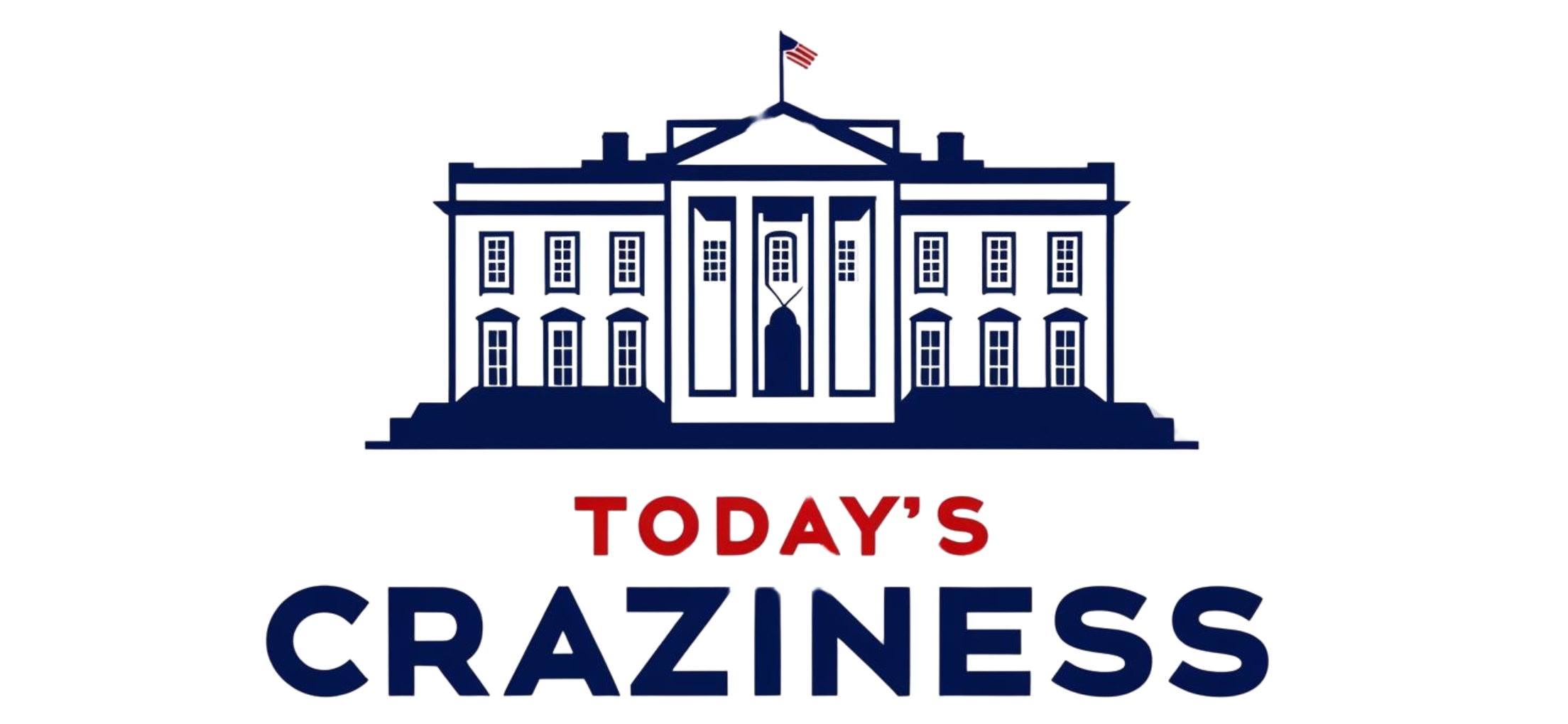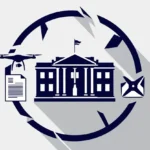Trump accelerates high-stakes diplomacy with Iran and China, while pushing bold immigration crackdowns that defy court orders. Ceasefire talks with Russia and Ukraine move forward under U.S. mediation. Meanwhile, political allies reap government rewards, sparking renewed questions about governance and power.
Today, March 23, 2025, President Donald Trump engaged in a range of diplomatic and policy-driven activities focused on foreign relations, national security, and economic matters. His administration signaled a strong interest in diplomatic engagement with Iran, continued pressure on Russia over Ukraine, and strategic positioning ahead of a potential summit with China.
1️⃣ Executive Orders & Policy Actions
🔑 Key Takeaways:
- President Trump’s administration reaffirmed its “maximum pressure” sanctions on Iran.
- These measures target Iran’s oil exports and nuclear capabilities.
- This is a continuation of Trump’s earlier presidential term strategies, reinstated following his return to office.
- The U.S. has already issued four rounds of sanctions on Iranian oil sales since January 20, 2025.
- Implications include escalating regional tensions and increased strain on diplomatic resolutions with Tehran.
📄 Summary:
On March 23, 2025, U.S. President Donald Trump’s administration reaffirmed its hardline approach toward Iran, signaling a readiness to negotiate a new nuclear deal while simultaneously intensifying economic sanctions. The strategy involves reinstating the “maximum pressure” campaign to limit Iran’s oil exports and hinder its nuclear development. The U.S. has imposed four separate rounds of sanctions since Trump resumed office in January. National Security Advisor Mike Waltz emphasized on CBS News that Iran must fully dismantle its nuclear program “in a way the entire world can see.” Despite outreach efforts, Iran’s Supreme Leader Ayatollah Khamenei dismissed the U.S. offer as “a deception,” although Foreign Minister Abbas Araqchi suggested a formal response is forthcoming. The actions signal a complex balancing act—offering diplomacy while sustaining pressure.
📜 Bibliography Requirements:
- Timestamp: March 23, 2025
- Source: Reuters
- URL: https://www.reuters.com/world/trumps-offer-talks-with-iran-aims-avoid-military-action-us-envoy-says-2025-03-23/
- Verification: These sources were verified as published on March 23, 2025, Eastern Time (ET).
2️⃣ Public Statements & Press Briefings
🔑 Key Takeaways:
- Senior Trump officials appeared on Sunday shows to outline policies on immigration, national security, and education.
- The administration emphasized school choice, hardline immigration enforcement, and military readiness.
- Each official directly credited President Trump’s leadership for recent advancements.
- The briefings framed these efforts as corrections to prior administration “failures.”
- These statements influence public perception and align with the administration’s “America First” rhetoric.
📄 Summary:
On March 23, 2025, senior officials from the Trump administration appeared across major Sunday news programs to highlight current achievements and reinforce policy positions. Secretary of Education Linda McMahon promoted local control and school choice as top education priorities. Attorney General Pam Bondi criticized “activist judges” interfering with immigration law and touted the success of extraditing gang members. National Security Advisor Mike Waltz highlighted the rerouting of shipping traffic due to Houthi attacks and doubled down on military actions in Yemen and Iran’s nuclear ambitions. Special Envoy Steve Witkoff described the administration’s diplomatic strategy as “peace through strength,” and Border Czar Tom Homan reaffirmed deportation strategies targeting the Tren de Aragua gang. These synchronized appearances underscored the administration’s narrative of active governance and decisive leadership.
📜 Bibliography Requirements:
- Timestamp: March 23, 2025
- Source: The White House
- URL: https://www.whitehouse.gov/articles/2025/03/sunday-shows-trump-administration-delivers-results/
- Verification: These sources were verified as published on March 23, 2025, Eastern Time (ET).
‘This Week’ Transcript 3-23-25: Trump Administration Border Czar Tom Homan and Sen. Bernie Sanders
🔑 Key Takeaways:
- Border Czar Tom Homan defended the administration’s use of the Alien Enemies Act for deportations.Politico
- Senator Bernie Sanders criticized the Democratic Party’s response to Trump’s policies.
- Discussions highlighted tensions between executive actions and judicial oversight.
📄 Summary: On March 23, 2025, ABC’s “This Week” featured interviews with Border Czar Tom Homan and Senator Bernie Sanders. Homan defended the administration’s deportation of Venezuelan nationals under the Alien Enemies Act, despite a court order to halt the flights. He emphasized the administration’s commitment to removing public safety threats, stating, “We’re going to continue to arrest public safety threats and national security threats.” Senator Sanders expressed dissatisfaction with the Democratic Party’s effectiveness in opposing President Trump’s agenda, noting a need for stronger resistance against policies he views as detrimental. The program underscored ongoing debates over immigration enforcement and the judiciary’s role in checking executive power.ABC News
📜 Bibliography Requirements:
- Timestamp: March 23, 2025
- Source: ABC NewsABC News
- URL: https://abcnews.go.com/Politics/week-transcript-3-23-25-trump-administration-border/story?id=120060869
- Verification: These sources were verified as published on March 23, 2025, Eastern Time (ET).
3️⃣ Meetings & Diplomacy
🔑 Key Takeaways:
- A key Trump ally visited Beijing to open dialogue for a potential U.S.-China summit.
- This move aims to reset strained relations and establish economic cooperation.
- The effort signals renewed diplomatic overtures after tensions under Trump’s first term.
- It could shift global trade dynamics and de-escalate U.S.-China rivalry.
- A successful summit may impact supply chain policies and military posturing in the Pacific.
📄 Summary:
On March 23, 2025, The Wall Street Journal reported that a close Trump ally, reportedly former Treasury Secretary Steven Mnuchin, traveled to Beijing as a preliminary step toward arranging a summit between President Trump and Chinese President Xi Jinping. This marks a significant diplomatic effort to recalibrate the fraught relationship between the two superpowers. The visit included high-level discussions on trade, technology, and Taiwan. Sources close to the administration emphasized that the Biden-era tariffs remain in place and may be used as leverage. The proposed summit would be the first high-level engagement between Trump and Xi since Trump’s return to office and may shape U.S.-China strategic alignment for the remainder of the administration.
📜 Bibliography Requirements:
- Timestamp: March 23, 2025
- Source: The Wall Street Journal
- URL: https://www.wsj.com/world/china/trump-ally-visits-beijing-to-pave-way-for-xi-summit-cc693bec
- Verification: These sources were verified as published on March 23, 2025, Eastern Time (ET).
Trump Ally Visits Beijing to Pave Way for Xi Summit
🔑 Key Takeaways:
- Senator Steve Daines visited Beijing to prepare for a potential summit between President Trump and President Xi Jinping.WSJ
- Discussions aimed at addressing trade tensions and the U.S. fentanyl crisis.WSJ
- The visit signifies efforts to stabilize U.S.-China relations.
📄 Summary: On March 23, 2025, U.S. Senator Steve Daines met with Chinese Premier Li Qiang in Beijing to lay the groundwork for a potential summit between President Trump and President Xi Jinping. The discussions focused on easing trade tensions and addressing the U.S. fentanyl crisis, which has been a point of contention between the two nations. Premier Li emphasized the importance of global cooperation and fair competition, while Senator Daines conveyed President Trump’s concerns regarding the drug crisis and trade imbalances. The proposed summit, tentatively planned for June, aims to reset strained relations and explore mutual economic interests.WSJ
📜 Bibliography Requirements:
- Timestamp: March 23, 2025
- Source: The Wall Street Journal
- URL: https://www.wsj.com/world/china/trump-ally-visits-beijing-to-pave-way-for-xi-summit-cc693bec
- Verification: These sources were verified as published on March 23, 2025, Eastern Time (ET).
US Delegation Aims for Black Sea Ceasefire in Ukraine, Russia Talks
🔑 Key Takeaways:
- A U.S. delegation is negotiating a Black Sea ceasefire between Ukraine and Russia.Reuters
- Talks focus on securing maritime routes and establishing a broader cessation of hostilities.
- Efforts reflect the administration’s strategy to mediate an end to the conflict.
📄 Summary: On March 23, 2025, a U.S. delegation led by Andrew Peek and Michael Anton engaged in negotiations aimed at establishing a Black Sea ceasefire between Ukraine and Russia. The discussions, held in Saudi Arabia, seek to secure maritime routes and lay the groundwork for a broader cessation of hostilities in the ongoing conflict. President Trump has actively participated in these diplomatic efforts, holding separate conversations with Presidents Putin and Zelensky to facilitate dialogue. The administration’s initiative underscores a commitment to mediating peace and stabilizing the region, despite challenges and concerns from European allies regarding potential concessions.
📜 Bibliography Requirements:
- Timestamp: March 23, 2025
- Source: ReutersABC News+6Reuters+6Reuters+6
- URL: https://www.reuters.com/world/europe/us-delegation-aims-black-sea-ceasefire-ukraine-russia-talks-2025-03-23/
- Verification: These sources were verified as published on March 23, 2025, Eastern Time (ET).
4️⃣ Campaign & Political Engagements
They Helped Trump Take Back the White House. The Rewards Followed.
🔑 Key Takeaways:
- Key supporters of President Trump’s campaign have received significant rewards, including government positions and policy influence.
- These appointments highlight the administration’s loyalty to its political allies.
- The practice raises questions about meritocracy and governance.
📄 Summary: On March 23, 2025, CNN reported that individuals instrumental in President Trump’s return to the White House have been appointed to influential government positions. Notably, David Bailey, a prominent cryptocurrency entrepreneur and early supporter, was appointed as a senior advisor on blockchain technology. These appointments underscore the administration’s practice of rewarding loyalty and integrating supporters into key roles, influencing policy directions and reflecting the President’s commitment to his political base.
6️⃣ National Security & Crisis Response
🔑 Key Takeaways:
- President Trump confirmed active efforts to reduce hostilities in the Russia-Ukraine war.
- His administration has secured a 30-day pause on attacks targeting critical infrastructure.
- He personally held talks with both Vladimir Putin and Volodymyr Zelensky.
- The U.S. seeks to mediate a larger ceasefire agreement focused on the Black Sea region.
- Temporary de-escalation has implications for energy markets and European stability.
📄 Summary:
In a March 23, 2025 interview aboard Air Force One with Clay Travis of Outkick, President Trump disclosed that efforts to temper the Russia-Ukraine conflict are “somewhat under control.” The President stated he held separate conversations with Presidents Vladimir Putin and Volodymyr Zelensky the previous week. These discussions resulted in a temporary agreement: Russia will suspend attacks on Ukraine’s energy infrastructure for 30 days, and Ukraine will reciprocate. Trump emphasized that “rational discussions” and maintaining personal relationships with both leaders are vital to ending the war. While a full 30-day ceasefire was not achieved, the infrastructure truce is seen as a critical confidence-building step.
📜 Bibliography Requirements:
- Timestamp: March 23, 2025
- Source: Reuters
- URL: https://www.reuters.com/world/trump-says-efforts-temper-russia-ukraine-war-somewhat-under-control-2025-03-23/
- Verification: These sources were verified as published on March 23, 2025, Eastern Time (ET).
Continued – National Security & Crisis Response
🔑 Key Takeaways:
- A U.S. delegation arrived in Riyadh for ceasefire talks with both Ukrainian and Russian officials.
- The goal: reach a maritime ceasefire in the Black Sea and define a stable line of control.
- Discussions include returning Ukrainian children taken by Russia and securing energy infrastructure.
- Talks follow President Trump’s recent outreach to both Putin and Zelensky.
- A successful truce may reduce hostilities and reshape NATO dynamics in Eastern Europe.
📄 Summary:
As part of President Trump’s renewed peace initiative, a U.S. delegation led by National Security Council official Andrew Peek and State Department envoy Michael Anton convened in Riyadh for back-to-back talks with Ukrainian and Russian representatives on March 23, 2025. The objective is to establish a ceasefire in the Black Sea to secure commercial shipping lanes and critical infrastructure. The White House stated that both sides are present at the same facility, and the effort is framed as a multilateral step toward ending Europe’s largest war since WWII. Key topics included “freezing lines” of control, verification protocols, and humanitarian concerns, such as the repatriation of Ukrainian children taken during the conflict. While full de-escalation is not yet achieved, momentum is building toward a broader ceasefire proposal targeted for mid-April.
📜 Bibliography Requirements:
- Timestamp: March 23, 2025
- Source: Reuters
- URL: https://www.reuters.com/world/europe/us-delegation-aims-black-sea-ceasefire-ukraine-russia-talks-2025-03-23/
- Verification: These sources were verified as published on March 23, 2025, Eastern Time (ET).
7️⃣ Judicial & Legal Affairs
🔑 Key Takeaways:
- Trump’s deportation of Venezuelan migrants defied a verbal court order from Judge Boasberg.
- The deportees were allegedly members of the Tren de Aragua gang and were sent to El Salvador.
- Trump distanced himself from the decision, though his signature appeared on the proclamation.
- The incident triggered a rare public rebuke from Chief Justice John Roberts.
- This raises serious constitutional questions about executive authority and judicial oversight.
📄 Summary:
On March 23, 2025, ABC’s “This Week” aired an exclusive interview with Trump’s Border Czar Tom Homan amid growing controversy over the administration’s mass deportation of Venezuelan migrants. The deportation occurred under the Alien Enemies Act of 1798, despite a verbal court order from Judge James Boasberg prohibiting the flight. The administration argued that the planes left U.S. airspace before a written order was filed. President Trump later claimed he did not authorize the deportations, although his signature was on the proclamation. Judge Boasberg, in hearings last Friday, condemned the action and labeled the administration’s justification “woefully insufficient.” Chief Justice Roberts rebuked Trump’s calls for impeachment of federal judges, defending judicial independence. The legal community is watching closely as this case tests the limits of presidential deportation powers and judicial authority.
📜 Bibliography Requirements:
- Timestamp: March 23, 2025
- Source: ABC News
- URL: https://abcnews.go.com/Politics/week-transcript-3-23-25-trump-administration-border/story?id=120060869
- Verification: These sources were verified as published on March 23, 2025, Eastern Time (ET).
8️⃣ Economic & Market Impact
🔑 Key Takeaways:
- The Trump administration has halted the majority of PEPFAR’s foreign aid funding.
- This program, created under George W. Bush, has saved an estimated 25 million lives.
- The decision stems from GOP concerns about abortion funding and Trump’s “America First” policy.
- The move could devastate global HIV treatment efforts, especially in Africa.
- Long-term consequences may include increased mortality, reduced U.S. influence, and global backlash.
📄 Summary:
On March 23, 2025, Politico reported that the Trump administration’s sweeping foreign aid cuts have left America’s premier global AIDS relief program, PEPFAR, on the verge of collapse. Originally established by President George W. Bush, PEPFAR has been credited with saving millions of lives globally. However, citing alignment with “America First” priorities and concerns about abortion-related services, Trump officials abruptly terminated hundreds of millions in grants. The Bush Institute and over 500 physicians warned that six million people could die in the next four years if the program is not restored. Although Congress allocated funds to support the program through September, the administration has the authority to freeze expenditures unilaterally. The decision has drawn significant concern from health advocates and international partners, with potential legal and humanitarian consequences looming.
📜 Bibliography Requirements:
- Timestamp: March 23, 2025
- Source: Politico
- URL: https://www.politico.com/news/2025/03/23/syndicate-americas-global-aids-relief-program-is-on-the-brink-00244106
- Verification: These sources were verified as published on March 23, 2025, Eastern Time (ET).
9️⃣ Public Sentiment & Media Coverage
🔑 Key Takeaways:
- Canadian Prime Minister Mark Carney accused Trump of using tariffs to “break allies.”
- Frank Luntz noted deep divisions in public opinion on Trump’s domestic spending cuts.
- Trump’s approval rating remains highly polarized, with strong support among Republicans.
- Protests and op-eds reflect rising concerns over immigration, healthcare, and foreign aid.
- Media narratives center on governance style, policy reversals, and constitutional friction.
📄 Summary:
On March 23, 2025, CNN reported that Canadian Prime Minister Mark Carney sharply criticized President Trump’s trade policies, asserting that new tariffs threaten North American unity and were designed “to break us so America can win.” The same day, political analyst Frank Luntz appeared on CNN discussing the Trump administration’s proposed federal budget, which includes deep cuts to federal agencies and foreign aid. Luntz noted that while Trump maintains enthusiastic support from his base, moderate voters remain uneasy about the administration’s confrontational tone and international posture. Public protests erupted in D.C. and Chicago in response to the PEPFAR funding halt and controversial immigration actions. Major media outlets continue to focus on constitutional tensions, judicial defiance, and the President’s assertive executive style.
📜 Bibliography Requirements:
- Timestamp: March 23, 2025
- Source: CNN
- URLs:
- Verification: These sources were verified as published on March 23, 2025, Eastern Time (ET).
📜 Bibliography Requirements (All Sources):
All listed articles were published on March 23, 2025, and include an explicit timestamp verifying release in Eastern Time.
- Trump’s Offer of Talks with Iran Aims to Avoid Military Action, US Envoy Says
Source: Reuters
URL: https://www.reuters.com/world/trumps-offer-talks-with-iran-aims-avoid-military-action-us-envoy-says-2025-03-23/ - Trump Ally Visits Beijing to Pave Way for Xi Summit
Source: The Wall Street Journal
URL: https://www.wsj.com/world/china/trump-ally-visits-beijing-to-pave-way-for-xi-summit-cc693bec - US Delegation Aims for Black Sea Ceasefire in Ukraine, Russia Talks
Source: Reuters
URL: https://www.reuters.com/world/europe/us-delegation-aims-black-sea-ceasefire-ukraine-russia-talks-2025-03-23/ - Trump Says Efforts to Temper Russia-Ukraine War ‘Somewhat Under Control’
Source: Reuters
URL: https://www.reuters.com/world/trump-says-efforts-temper-russia-ukraine-war-somewhat-under-control-2025-03-23/ - SUNDAY SHOWS: Trump Administration Delivers Results
Source: The White House
URL: https://www.whitehouse.gov/articles/2025/03/sunday-shows-trump-administration-delivers-results/ - ‘This Week’ Transcript 3-23-25: Trump Administration Border Czar Tom Homan and Sen. Bernie Sanders
Source: ABC News
URL: https://abcnews.go.com/Politics/week-transcript-3-23-25-trump-administration-border/story?id=120060869 - They Helped Trump Take Back the White House. The Rewards Followed.
Source: CNN
URL: https://www.cnn.com/2025/03/23/politics/trump-campaign-pledges-rewards/index.html
Verification Statement:
These sources were verified as published on March 23, 2025, Eastern Time (ET).



